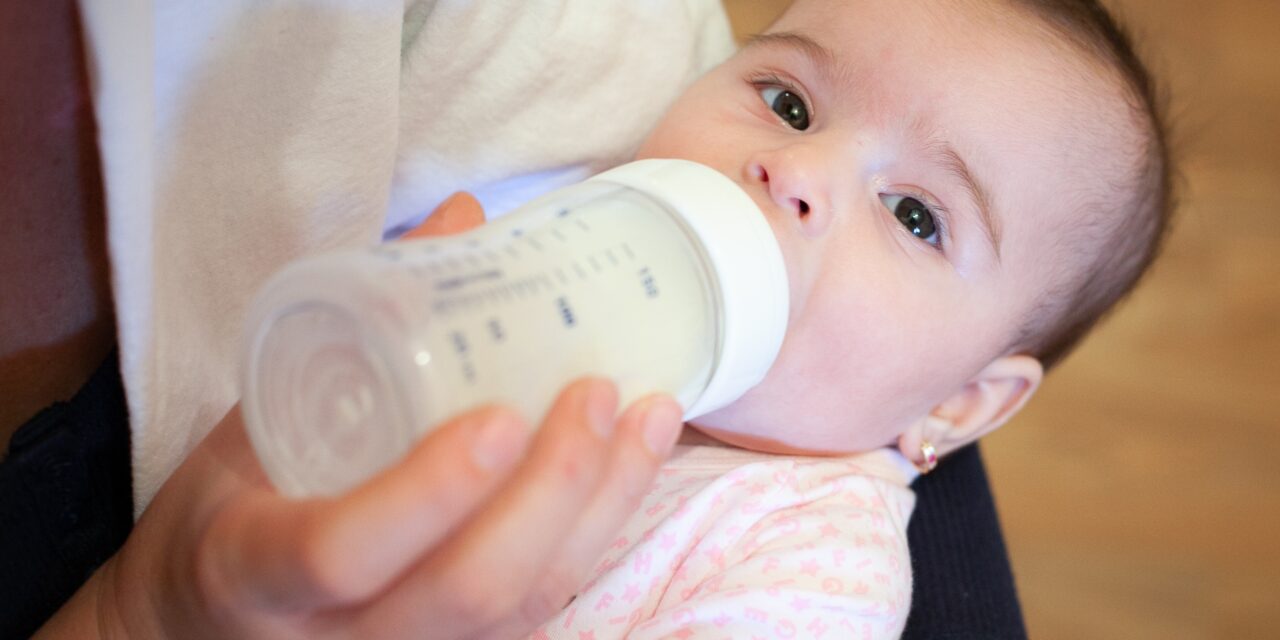“My 4 month-old is formula fed and wants her bottle all the time. My mother-in-law told me to start putting rice cereal in her bottles to fill her up a little more, and it seemed to work for a bit but now she’s right back to wanting a bottle all the time and starting to get chubby. Is there something else I can give her to scale back feedings?”
I don’t recommend adding cereals to infant bottles unless specifically advised by a pediatric gastroenterologist.
One reason for this is that it increases the caloric density of the formula significantly, which may lead to excessive weight gain and diminish your baby’s appetite for other solid foods which they may be ready to explore, albeit close to 5-6 months of age. It also can increase their risk of choking as the viscosity of the fluid is thicker than formula. Many babies at around 4 months of age are not yet ready to initiate solid foods. Their head and neck control, and the muscles required for chewing and protecting the airway may still be too weak. Lastly, rice products contain the most arsenic of any common grain. Arsenic is a known heavy metal and carcinogen that with chronic and frequent exposure lead to a reduction in cognitive performance and verbal IQ.
Developmental pediatricians have studied the importance of the first 1000 days of life, a malleable and delicate time period from conception through birth that is critical for the neurodevelopment of a child.
Studies have shown that balanced nutrition and a supportive loving environment are crucial for your baby’s brain development. I like to think about the first 1000 days of life as a sacred time where parents should be mindful about potential toxic exposures.
Some parents have the misconception that if a product is labeled “non-GMO” or “organic” that it will be entirely safe, and that is not the case.
I recommend passing on the rice for the first 1000 days and offering grains such as whole wheat, oats, barley, and quinoa instead. While it’s true that a lot of these heavy metals are impossible to avoid completely, as they are persistent in the soil, they occur in far less concentrations than in rice. Varying what you offer your child and sourcing nutrition from a variety of regions and brands will avoid prolonged exposure to harmful chemicals.

















